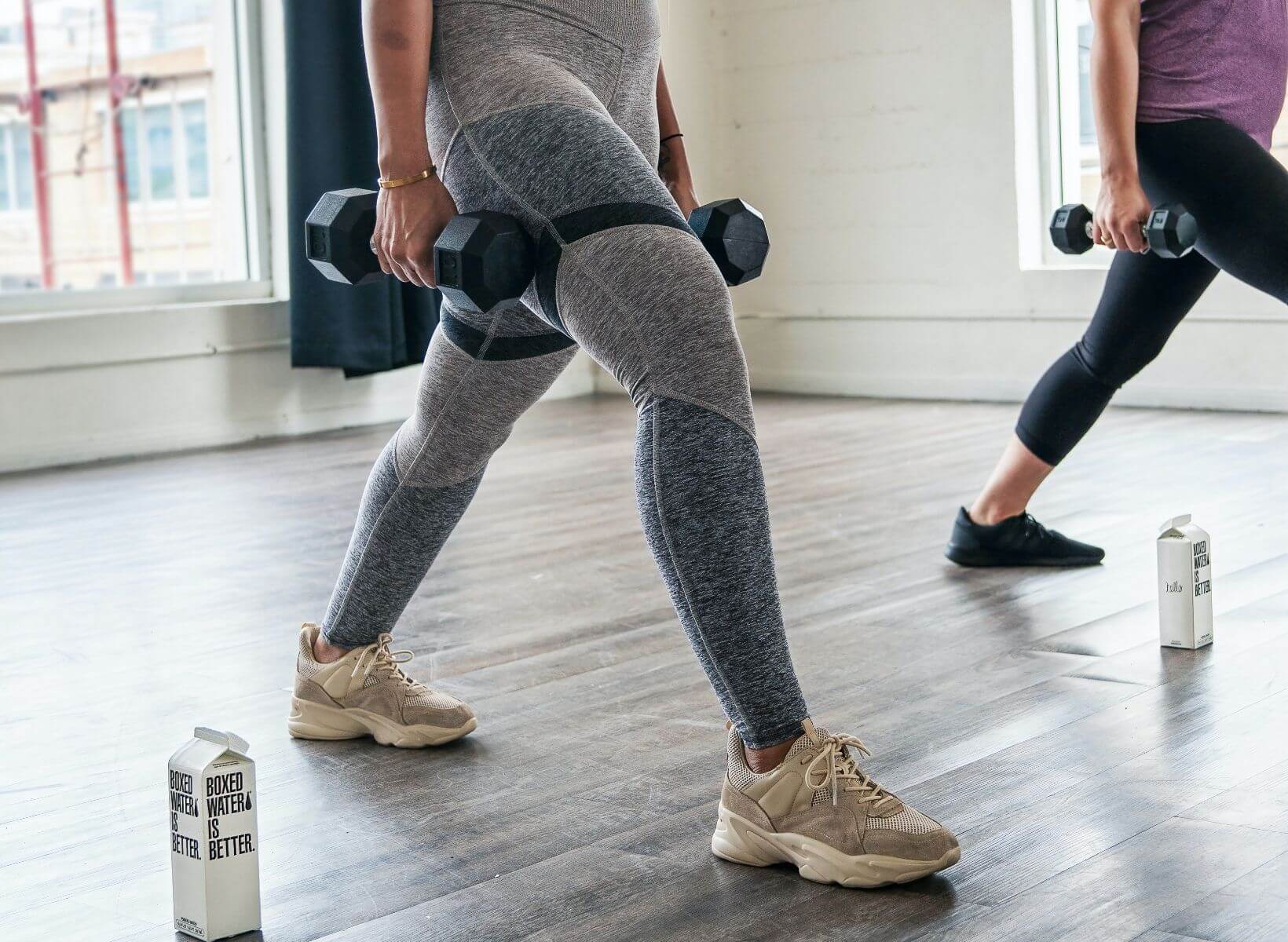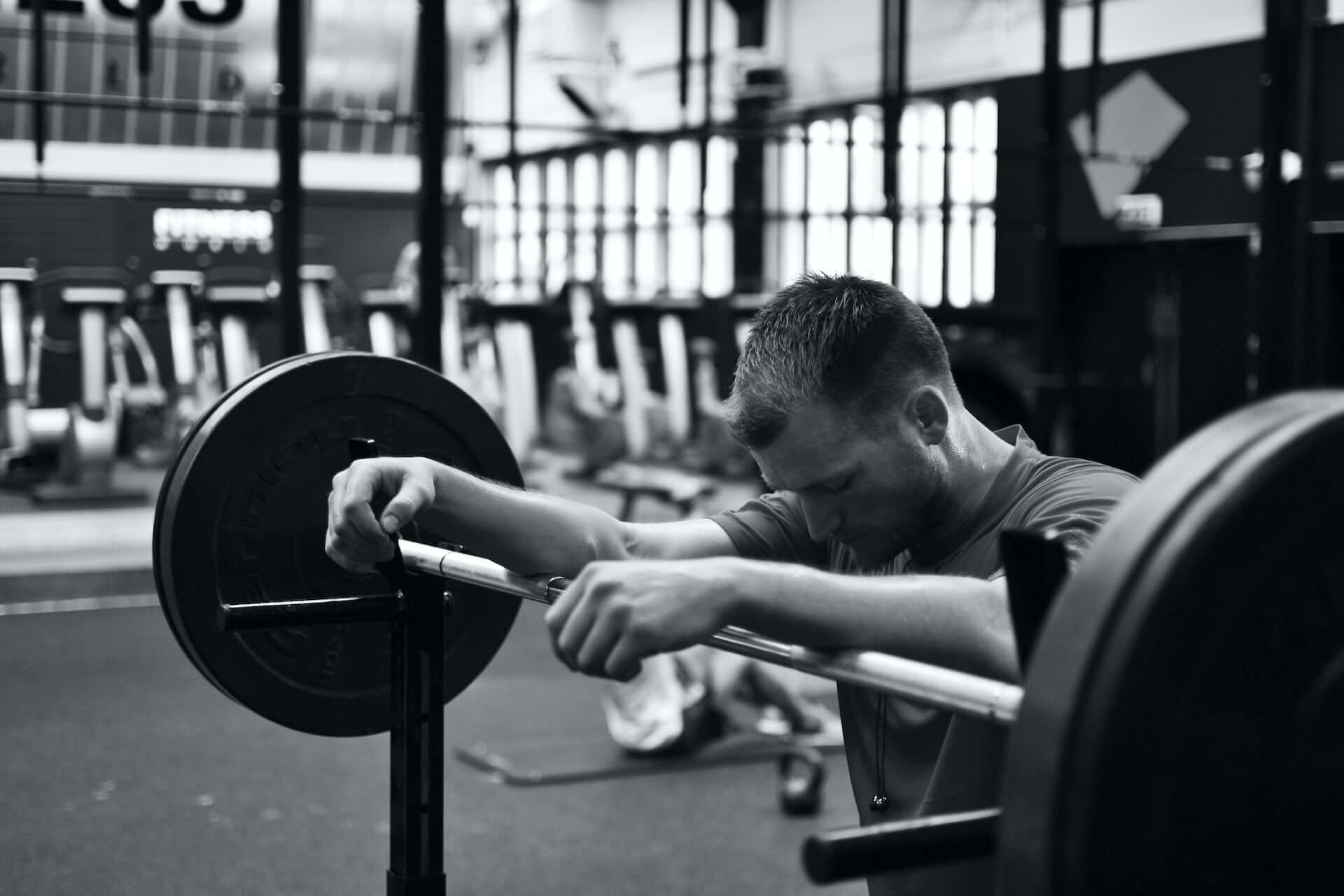We all know how it feels to be tired. That dragging feeling where it seems like no matter how much coffee you drink or how many hours you sleep, you just can't get going.
For some people, fatigue is a constant battle. And if you're struggling with low energy levels, it can significantly impact your quality of life. The more tired you are, the more likely you'll reach for caffeine or other quick fixes. The problem is that these solutions are usually temporary and can make you feel even more tired in the long run.
So how can you break the fatigue cycle and get your energy levels back on track? The key is to build habits into your daily routine that can boost your energy naturally.
Here are 11 science-backed ways to do it, plus fatigue symptoms to look out for and why you may feel tired in the first place.
{{mid-cta}}
What Causes Low Energy Levels?
Low energy levels can be caused by many different factors, including:
Lack of sleep
The average adult needs between 7 to 9 hours of sleep a night, but studies show that many people are not getting enough.¹
Nutrient-poor diet
Eating a diet high in processed foods and low in nutrient-rich whole foods can lead to a less-than-optimal intake of essential micronutrients, which contribute to a healthy metabolism.²
Excess stress
Daily stress may not seem like such a big deal because you can't always immediately feel the effects, but studies show it can take a toll on your energy levels.³
Underlying health conditions
Conditions like anemia, hypothyroidism, and metabolic syndrome can all cause fatigue.⁴
Excessive alcohol consumption
Drinking too much alcohol can disrupt sleep patterns, making it harder to get a good night's sleep.⁵
Using electronic devices at night
Blue light from screens can interfere with the production of melatonin, a hormone that helps regulate sleep and wake cycles.⁶
Mental health concerns
Depression can cause feelings of fatigue, as can anxiety.⁷
Not enough exercise
It seems counterintuitive, but being inactive can lead to fatigue because it doesn't give your body a chance to produce energy.⁸
Blood sugar dysregulation
Fatigue is linked to high blood sugar and insulin and is closely associated with type 1 and 2 diabetes.⁹
Important note: If you're experiencing fatigue, especially if it's a new symptom, it's always a good idea to consult your doctor to rule out any underlying health concerns.
What Does Lack of Energy Look Like?
Lack of energy can manifest in multiple ways. Sometimes it can directly impact physical well-being and limit your ability to participate in activities you love. Other times, it can take a mental toll and make it hard to focus or be productive. Either way, it can seriously throw off your day-to-day routine and make everything just feel harder.
Here are some common signs of low energy levels:
- Feeling tired all the time
- Difficulty focusing or being productive
- Lack of motivation
- Difficulty completing tasks
- Irritability or short temper
- Increase in coffee or alcohol consumption
- Disrupted sleep patterns
- Feeling overwhelmed or stressed
- Food cravings or low appetite
10 Science-Backed Natural Ways to Boost and Improve Energy Levels
New habits take time. Even though we'd all love overnight results, wellness just doesn't work like that.
The good news is there are things you can do starting today to help boost your energy levels in the long run. So, before you chug down an energy drink that may have more sugar, artificial colors, or caffeine than you should be consuming in an entire week, consider these natural alternatives instead.

1. Establish a Sleep Routine
Stop and think about children for a second. Parents are taught that babies and kids thrive off sleep routines from the beginning to help them create healthy sleep habits. The same goes for adults.
It goes without saying that if you aren't sleeping at night, you'll be tired during the day. There's no way around it. Plus, sleep disruption adversely affects other aspects of health, like blood sugar, metabolism, and hormone levels.¹⁰
What's a healthy sleep routine look like? Pick a specific time to be in bed and stick to it. Make sure your room is cool and dark to promote optimal sleep. Limit working late or getting sucked into just one more episode of your favorite show, and find a relaxing way to wind down before bed. This could be reading, taking a bath, or writing in a journal. Whatever feels good and relaxing to you, do that.
2. Eat Nutrient-Dense Foods
What you put into your body significantly impacts how you feel physically and mentally. When you're run down, it's easy to reach for unhealthy options that will leave you feeling sluggish and low on energy.
A study on healthy adults found that a high-glycemic diet significantly increased scores for fatigue and depression compared to a diet high in low-glycemic foods like legumes and whole grains—even when calories remained the same for both groups.¹¹ Focus on nutrient-dense foods like fruits and vegetables, whole grains, protein-rich foods, and healthy fats.
3. Get Some Sun (Especially First Thing in the Morning)
Sunlight is one of the most important things for our health. It helps regulate our sleep-wake cycle, activates vitamin D production, and is a natural mood booster.¹²,¹³ All of these things can have an impact on energy levels. If you can, try to get some sun first thing in the morning to help to regulate your circadian rhythm and promote healthy sleep patterns.¹⁴
4. Support Your Gut Health
How's your gut connected to energy levels? A healthy gut is crucial for nutrient absorption, which, as we've already established, is needed for energy metabolism.¹⁵ Additionally, the gut is home to most of your immune cells, so keeping it healthy also supports a healthy immune response.¹⁶
Short-chain fatty acids (SCFA), the byproducts of gut bacteria fermentation of fiber, may also support healthy energy levels.¹⁷ This may be because SCFAs play a role in energy production and blood sugar balance.¹⁸
Eating fiber is one of the best habits you can develop for gut health. Fiber is a prebiotic to feed the bacteria in your gut and promotes diversity. Good sources of fiber include fruits, vegetables, whole grains, legumes, nuts, and seeds.
5. Stay Hydrated
Water is essential for our health and plays a role in almost every bodily function, so it's no surprise that being even slightly dehydrated can impact how we feel physically and mentally.
Dehydration can lead to fatigue, attention, and short-term memory issues.¹⁹ Even minor dehydration can impact athletic performance.²⁰ Aim for 8 to 10 cups of water a day, but know this number can change if you live in a hot climate, exercise regularly, or are pregnant or breastfeeding.
6. Work on Stress Management
The key word here is "work" because stress management doesn't just happen. It's something you have to actively work on. When stressed, your body enters fight-or-flight mode and releases the hormone cortisol. Cortisol is a stress hormone that helps us deal with perceived threats. Small amounts are helpful and normal, but when cortisol levels are constantly high, it can affect your health, including energy levels.
Chronic stress can zap energy levels, impact sleep quality, and contribute to weight gain. It can also lead to serious health conditions like heart disease, anxiety, and depression.²¹
There are many different stress management techniques. Some people find that exercise, journaling, and spending time in nature help to reduce stress. Others find that meditation, yoga, and breathing exercises work better for them. The key is to find what works for you and make it a part of your regular routine.

7. Keep Tabs on Your Caffeine Consumption
What's the first thing many adults reach for when they are tired? Coffee or tea. Caffeine is a central nervous system stimulant that works by binding to adenosine receptors in the brain. This blocks the effects of adenosine, a neurotransmitter that makes us feel sleepy.²²
Caffeine can improve energy levels and cognitive performance, but too much caffeine can lead to jitters, anxiety, and difficulty sleeping. And guess what happens? You wake up even more tired, and the cycle begins again.
If you have a cup or two in the morning and don't drink any more caffeine for the rest of the day, you're likely fine. But if you rely on multiple cups of coffee or energy drinks throughout the day, consider cutting back.
8. Move Your Body (But Don't Overdo It)
Getting outside and going for a walk may be the last thing you feel like doing if you are exhausted, but it can actually help give you a much-needed energy boost. Exercise doesn't have to be intense to be beneficial. One study found that low-intensity exercise boosted energy by 65 percent compared to no activity.²³
A brisk walk, light jog, or even gentle yoga or stretching can help increase energy levels. The only caveat is if you are someone who already exercises, overtraining can lead to fatigue and decreased energy levels. If you already do hours of cardio or HIIT training with minimal rest days and constantly feel depleted, you may want to back off a bit.
9. Limit Alcohol Consumption
We all know that drinking too much alcohol can lead to a hangover the next day. And it can also zap your energy levels.²⁴ Alcohol disrupts sleep quality and can lead to dehydration, fatigue, and low energy levels. Dehydration can lead to headaches, dizziness, and tiredness.
If you want to drink alcohol, do so in moderation. The Dietary Guidelines for Americans recommend no more than one drink per day for women and two drinks per day for men.²⁵ Still, even this amount may not be worth it if it makes you tired the next day.
10. Minimize Added Sugars
The link between added sugars and energy levels involves your blood sugar response. When you eat foods high in sugar, your blood sugar levels increase. This leads to a release of insulin, which then causes your blood sugar levels to drop—a normal and healthy response to elevated blood sugar. But if it happens over and over throughout the day, the blood sugar swings may lead to fatigue and low energy levels.
If you want to improve your energy levels, try limiting your added sugar and simple carb intake. This includes sugar-sweetened beverages, desserts, and processed snacks. Instead, focus on eating whole foods like fruits, vegetables, and whole grains.
If you're looking for more information on achieving a healthy and balanced lifestyle, check out our blog, where you'll find more tips and tricks to live your best life. From foods for metabolic health to ways to get moving, we have you covered.
- Item 1
- Item 2
- item 3
Topics discussed in this article:
References
1. Watson, N. F., Badr, M. S., Belenky, G., Bliwise, D. L., Buxton, O. M., Buysse, D., Dinges, D. F., Gangwisch, J., Grandner, M. A., Kushida, C., Malhotra, R. K., Martin, J. L., Patel, S. R., Quan, S. F., & Tasali, E. (2015). Recommended Amount of Sleep for a Healthy Adult: A Joint Consensus Statement of the American Academy of Sleep Medicine and Sleep Research Society. Sleep, 38(6), 843–844. https://doi.org/10.5665/sleep.4716
2. Marrón-Ponce, J. A., Sánchez-Pimienta, T. G., Rodríguez-Ramírez, S., Batis, C., & Cediel, G. (2022). Ultra-processed foods consumption reduces dietary diversity and micronutrient intake in the Mexican population. Journal of human nutrition and dietetics : the official journal of the British Dietetic Association, 10.1111/jhn.13003. Advance online publication. https://doi.org/10.1111/jhn.13003
3. Kocalevent, R. D., Hinz, A., Brähler, E., & Klapp, B. F. (2011). Determinants of fatigue and stress. BMC research notes, 4, 238. https://doi.org/10.1186/1756-0500-4-238
4. Greenberg D. B. (2002). Clinical Dimensions of Fatigue. Primary care companion to the Journal of clinical psychiatry, 4(3), 90–93. https://doi.org/10.4088/pcc.v04n0301
5. Colrain, I. M., Nicholas, C. L., & Baker, F. C. (2014). Alcohol and the sleeping brain. Handbook of clinical neurology, 125, 415–431. https://doi.org/10.1016/B978-0-444-62619-6.00024-0
6. Tähkämö, L., Partonen, T., & Pesonen, A. K. (2019). Systematic review of light exposure impact on human circadian rhythm. Chronobiology international, 36(2), 151–170. https://doi.org/10.1080/07420528.2018.1527773
7. Targum, S. D., & Fava, M. (2011). Fatigue as a residual symptom of depression. Innovations in clinical neuroscience, 8(10), 40–43.
8. Puetz, T. W., Flowers, S. S., & O'Connor, P. J. (2008). A randomized controlled trial of the effect of aerobic exercise training on feelings of energy and fatigue in sedentary young adults with persistent fatigue. Psychotherapy and psychosomatics, 77(3), 167–174. https://doi.org/10.1159/000116610
9. Kalra, S., & Sahay, R. (2018). Diabetes Fatigue Syndrome. Diabetes therapy : research, treatment and education of diabetes and related disorders, 9(4), 1421–1429. https://doi.org/10.1007/s13300-018-0453-x
10. Medic, G., Wille, M., & Hemels, M. E. (2017). Short- and long-term health consequences of sleep disruption. Nature and science of sleep, 9, 151–161. https://doi.org/10.2147/NSS.S134864
11. Breymeyer, K. L., Lampe, J. W., McGregor, B. A., & Neuhouser, M. L. (2016). Subjective mood and energy levels of healthy weight and overweight/obese healthy adults on high-and low-glycemic load experimental diets. Appetite, 107, 253–259. https://doi.org/10.1016/j.appet.2016.08.008
12. Blume, C., Garbazza, C., & Spitschan, M. (2019). Effects of light on human circadian rhythms, sleep and mood. Somnologie : Schlafforschung und Schlafmedizin = Somnology : sleep research and sleep medicine, 23(3), 147–156. https://doi.org/10.1007/s11818-019-00215-x
13. Wacker, M., & Holick, M. F. (2013). Sunlight and Vitamin D: A global perspective for health. Dermato-endocrinology, 5(1), 51–108. https://doi.org/10.4161/derm.24494
14. Mead M. N. (2008). Benefits of sunlight: a bright spot for human health. Environmental health perspectives, 116(4), A160–A167. https://doi.org/10.1289/ehp.116-a160
15. Krajmalnik-Brown, R., Ilhan, Z. E., Kang, D. W., & DiBaise, J. K. (2012). Effects of gut microbes on nutrient absorption and energy regulation. Nutrition in clinical practice : official publication of the American Society for Parenteral and Enteral Nutrition, 27(2), 201–214. https://doi.org/10.1177/0884533611436116
16. Wiertsema, S. P., van Bergenhenegouwen, J., Garssen, J., & Knippels, L. (2021). The Interplay between the Gut Microbiome and the Immune System in the Context of Infectious Diseases throughout Life and the Role of Nutrition in Optimizing Treatment Strategies. Nutrients, 13(3), 886. https://doi.org/10.3390/nu13030886
17. LeBlanc, J. G., Chain, F., Martín, R., Bermúdez-Humarán, L. G., Courau, S., & Langella, P. (2017). Beneficial effects on host energy metabolism of short-chain fatty acids and vitamins produced by commensal and probiotic bacteria. Microbial cell factories, 16(1), 79. https://doi.org/10.1186/s12934-017-0691-z
18. He, J., Zhang, P., Shen, L., Niu, L., Tan, Y., Chen, L., Zhao, Y., Bai, L., Hao, X., Li, X., Zhang, S., & Zhu, L. (2020). Short-Chain Fatty Acids and Their Association with Signalling Pathways in Inflammation, Glucose and Lipid Metabolism. International journal of molecular sciences, 21(17), 6356. https://doi.org/10.3390/ijms21176356
19. Zhang, N., Du, S. M., Zhang, J. F., & Ma, G. S. (2019). Effects of Dehydration and Rehydration on Cognitive Performance and Mood among Male College Students in Cangzhou, China: A Self-Controlled Trial. International journal of environmental research and public health, 16(11), 1891. https://doi.org/10.3390/ijerph16111891
20. Maughan, R. J. (2003). Impact of mild dehydration on wellness and on exercise performance. European journal of clinical nutrition, 57(2), S19-S23.
21. McEwen B. S. (2008). Central effects of stress hormones in health and disease: Understanding the protective and damaging effects of stress and stress mediators. European journal of pharmacology, 583(2-3), 174–185. https://doi.org/10.1016/j.ejphar.2007.11.071
22. Lazarus, M., Shen, H. Y., Cherasse, Y., Qu, W. M., Huang, Z. L., Bass, C. E., ... & Chen, J. F. (2011). Arousal effect of caffeine depends on adenosine A2A receptors in the shell of the nucleus accumbens. Journal of Neuroscience, 31(27), 10067-10075.
23. Puetz, T. W., Flowers, S. S., & O'Connor, P. J. (2008). A randomized controlled trial of the effect of aerobic exercise training on feelings of energy and fatigue in sedentary young adults with persistent fatigue. Psychotherapy and psychosomatics, 77(3), 167–174. https://doi.org/10.1159/000116610
24. Colrain, I. M., Nicholas, C. L., & Baker, F. C. (2014). Alcohol and the sleeping brain. Handbook of clinical neurology, 125, 415–431. https://doi.org/10.1016/B978-0-444-62619-6.00024-0
25. Snetselaar, L. G., de Jesus, J. M., DeSilva, D. M., & Stoody, E. E. (2021). Dietary Guidelines for Americans, 2020–2025: Understanding the Scientific Process, Guidelines, and Key Recommendations. Nutrition Today, 56(6), 287.
































